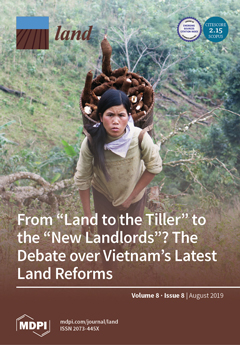Resource information
This paper uses the tripartite place attachment framework to examine six rural parishes across Estonia and Latvia. Existing analyses/frameworks on participatory processes often neglect the complexity of relationships that rural residents have to their local environments. From a qualitative analysis of face-to-face, semi-structured interviews with case study area inhabitants (23 interviews in Estonia and 27 in Latvia), we depict varying degrees of attachment of individuals to each other and to the place in which they live and their readiness to participate in terms of willingness and ability to participate in a landscape-scale management process. Attachment to the local area was strongest where the social ties were strongest, independent of their sociogeographical features. Social ties were strong where there were good family connections or strong religious or cultural institutions. Taking individual parishes and engaging inhabitants through in-depth interviews using place attachment analysis gives an overall perspective of life in that rural location. These findings reveal important connections within the communities with the potential for planners to engage with local inhabitants and possible barriers to participation.


